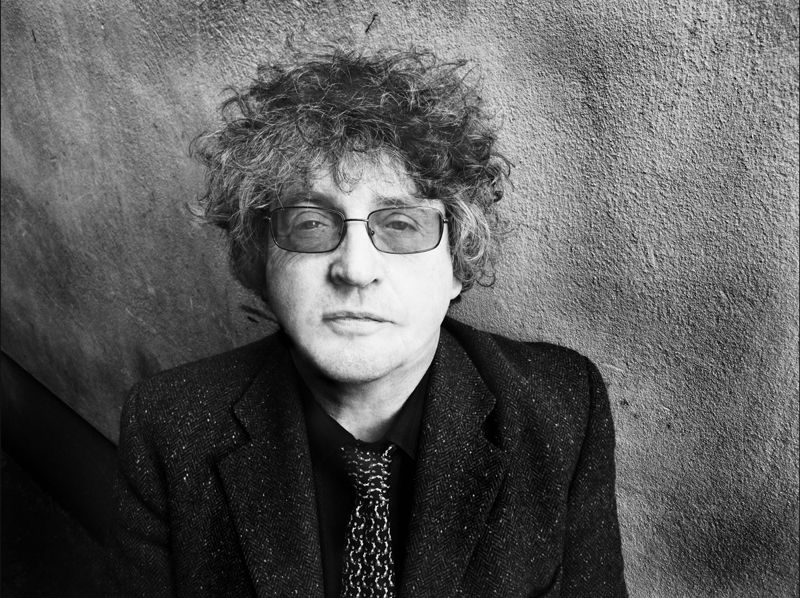
This past Saturday, Glenn Memorial Auditorium was filled with undergraduate and graduate students, professors and several members of the community surrounding Emory, making for one of the most diverse audiences I have ever seen on Emory's campus.
The occasion? A free reading by acclaimed Irish poet Paul Muldoon.
The reading was part of the Manuscript, Archive and Rare Book Library's Raymond Danowski Poetry Library Reading Series, which has included renowned poets such as Billy Collins as well as Natasha Trethewey, the U.S. Poet Laureate and director of Emory's Creative Writing program.
This event marked the opening of the exhibition on deceased Irish poet and Nobel Laureate Seamus Heaney, also a former mentor of Muldoon.
The exhibition, entitled "Seamus Heaney: The Music of What Happens," is located in the Schatten Gallery at the Robert W. Woodruff Library.
Kevin Young, curator of the Raymond Danowski Poetry Library, introduced Muldoon, highlighting the poet's 2003 Pulitzer Prize and commenting on his ability to "transport us to the specialness of the overlooked, the unseen found every day."
Following his introduction, rather than reading at the podium onstage, Muldoon stepped down to stand directly in front of the first row of the audience and read from a book in front of him, creating a more intimate atmosphere for the reading.
For his first reading, Muldoon chose his poem "Why Brownlee Left."
Before beginning to read, he explained to the audience that the poem "began with a photo of a pair of horses" and was about a "character [who] disappears off the face of the earth."
To the pleasure of the audience, Muldoon continued to introduce the poems he read in order to provide context for each one.
During the introduction of a poem titled "Anseo," Muldoon explained the background of Joseph Mary Plunkett, an "Irish poet and patriot" and a "republican, as they call him."
Plunkett was executed for his involvement in the Easter Rising, an uprising staged in 1916 by the Irish republicans as a protest to British rule.
Muldoon emphasized the weight of Plunkett's name by stating that "with his name comes a certain fret."
The poem itself described a schoolteacher's rule that students "call back Anseo" during roll call, and a boy harassed and beat by the same schoolteacher for sharing Plunkett's name.
The poem's speaker eventually runs into Plunkett years later, when Plunkett has become an important and highly ranked Irish fighter.
The compelling final lines of the poem, "...every morning at parade/ [Plunkett's] volunteers would call back Anseo/And raise their hands/As their names occurred," elicited thoughtful murmurs from the audience.
The poem reflected the theme that immoral behavior, such as violence, can be learned and perpetuated.
Both Muldoon's poetry and the manner with which he conducted his reading weaved together serious and humorous thoughts and insights.
During his second reading, which had a subtle touch of humor, one woman in the audience was the first to laugh out loud before immediately stopping herself.
Muldoon responded by interrupting his reading, looking straight at the audience, and saying, "It's okay, it's funny," causing more laughs and relaxing the audience.
This style with which Muldoon conducted his reading had an important effect on the audience. College senior Kelley McIntire said, "Muldoon engaged his audience to help them better understand his poetry, combining a passion for his descriptions with a sense of humor and humility that made me admire not only his fine words but also his character."
This interplay of humor and sobriety was also evident in Muldoon's introduction of the poem "The Sightseers," in which he described the oppression against Irish Catholics and a visit the Pope made to Ireland, pausing his explanation to jokingly tell the audience, "I'm sure you know about the Pope."
Muldoon assumed a more somber tone during the recitation of the poem itself, in which the speaker's Uncle Pat is forced by the "B-Specials," an anti-Catholic Irish police force active during the Irish War of Independence, to "curse the Pope of Rome."
The final lines of the poem, which read, "They held a pistol so hard against his forehead/ there was still the mark of an O when he got home" made a powerful impression on the audience, and emphasized the profound effects the complexities of Irish history has on Muldoon's poetry.
Another unique aspect of Muldoon's reading was that he incorporated both his earlier and his more modern works.
Fintan O'Toole, who was a featured speaker at the Emory event titled "Feeling into Words: A Conversation about Seamus Heaney," expressed his appreciation for this universality. O'Toole, a journalist for the Irish Times, was introduced to Muldoon's poetry in his youth, many years ago.
"Some of those early poems were the ones I would have read," O'Toole commented.
Overall, the reading left a positive impression on the audience, and Muldoon's exceptional ability to interact with his audience made the event all the more special.
"I thought it was really wonderful," O'Toole said. "He's a great performer. A lot of poets feel like [a reading] has to be really formal...He has the nerve to break that."
The students agreed. Molly Slavin, a second-year graduate student in the English Department, said, "It was a great opportunity to see a fantastic poet in person. His reading was engaging and lively and the fact that he was here in conjunction with the Seamus Heaney exhibit opening made for a wonderful day of Irish poetry."
The reading was a memorable event for both those who had read Muldoon's poetry for years as well as those who had never been exposed to it.
I myself was in the latter camp, and ended up purchasing one of Muldoon's books, which was soon graced with his autograph. I think it's fair to say Muldoon gained more than one new reader that day.
– By Farha Pirani
Photo courtesy of Oliver Morris
Read More
Trending







